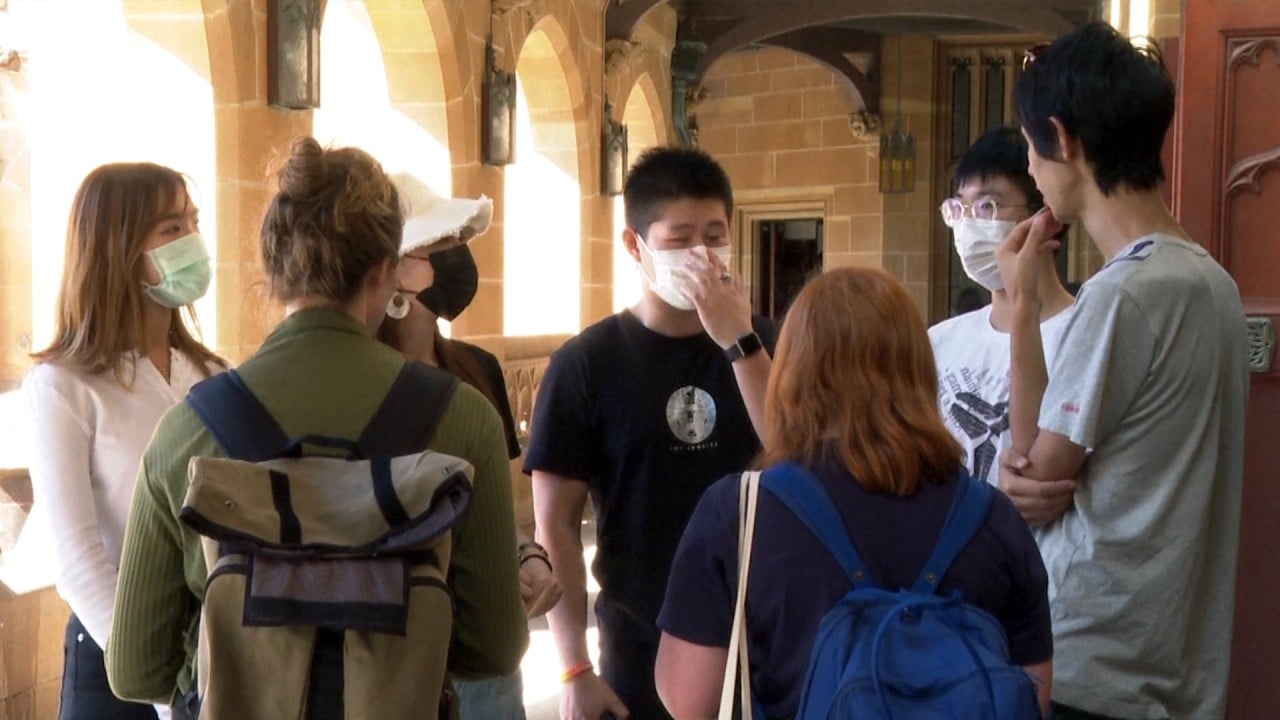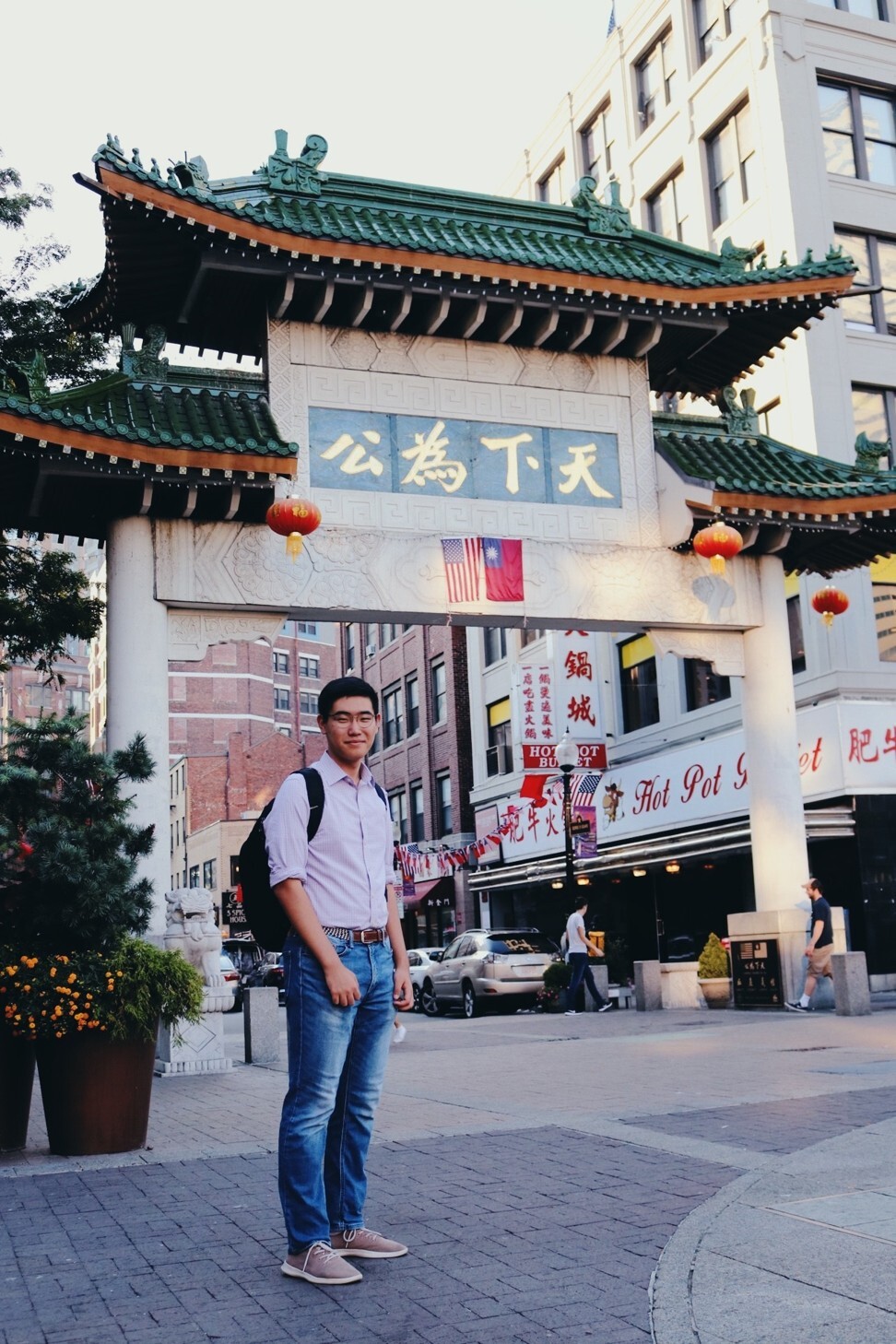
01:25
US colleges face US$15 billion hit as Chinese students stay away amid coronavirus pandemic

Ethan Qi should already be home for the summer.
The Shanghai native, who recently graduated from a university in Boston, planned to fly back to China in May but could not get a ticket because of the coronavirus pandemic. He tried twice to register for flights announced by the Chinese consulate in New York but was not able to secure a seat, leaving him to wait in Boston for one of the few flights home.
Now he may have to wait even longer. The US Department of Transportation last week said it would require Chinese carriers to file proposed flight schedules at least 30 days in advance, in response to Beijing not yet approving US carriers’ applications to resume services to China.
“My friends and I are not too worried because we think we will be able to buy flights later in June or July, although we have seen a lot of people around us already have their flights back to China pushed back,” Qi said. “But it will be quite concerning if US-China relations deteriorate further and they stop flights entirely or something like that.”

01:25
US colleges face US$15 billion hit as Chinese students stay away amid coronavirus pandemic
The nearly 370,000 Chinese students in the United States have been among those caught in the crossfire of tit-for-tat air travel restrictions between Beijing and Washington, as the major powers continue to lock horns during the pandemic.
Beijing said it opposed the US government’s disruption of Chinese airline operations, and that the Civil Aviation Administration of China’s (CAAC) notice in March that restricted airlines to one flight per week – known as the “Five Ones” policy – applied equally to foreign and domestic carriers. The CAAC did not respond to a faxed request for comment.
But Joel Szabat, assistant secretary for aviation and international affairs, wrote in the US transport department’s notice on May 22 that the CAAC had not approved applications from American carriers, United Airlines and Delta Air Lines, to resume passenger services to China. In response, Washington required Chinese carriers – Air China, Beijing Capital Airlines, China Eastern Airlines, China Southern Airlines, Hainan Airlines, Sichuan Airlines and Xiamen Airlines – to file their existing flight schedules to the US government by Wednesday, and file new flight services at least one month beforehand.
“We find that the government of China has, over the objections of the US government, impaired the operating rights of US carriers and denied them the fair and equal opportunity to exercise their operating rights under the agreement,” Szabat wrote.
According to the notice, there were 325 weekly scheduled flights between China and the US in early January, a number that dropped in mid-February to 20 flights operated by four Chinese carriers, then rose to 34 by Chinese carriers in March. Meanwhile, US carriers have suspended passenger flights to China since early February.
On Friday, the US embassy in Beijing said in a notice that the CAAC planned to extend its “Five Ones” policy until June 30. Four Chinese carriers – Air China, China Eastern Airlines, China Southern Airlines and Xiamen Air – currently fly direct routes from China to the US.

02:31
Repatriation of over 1.4 million Chinese students stranded abroad by Covid-19 creates dilemma
Koji Nagata, director of Asia-Pacific communications for United, said the airline was not currently operating flights between China and the US, but the company would “look forward to resuming those flights – to the benefit of our customers and communities in the US and China – when the regulatory environment allows us to do so”.
Sherry Shen, a spokeswoman for Delta, said the airline was “still waiting for government approval” for its restart of passenger flights to China, including a request to begin daily flights from Detroit to Shanghai through a transfer in Seoul, and from Seattle to Shanghai via Seoul.
The Chinese carriers named in the US notice did not respond to requests for comment.
Scott Kennedy, senior adviser and trustee chair in Chinese business and economics at the Centre for Strategic and International Studies, said US President Donald Trump’s administration was practising “negative reciprocity” by removing benefits from China in response to similar actions from Beijing.
“The restrictions on journalists, investment and airlines all fit into this pattern,” he said, referencing recent US measures on Chinese journalists and investments. “So far, Beijing has not withdrawn its restrictions in response, but rather escalated further still. We’ll find out whether either side is willing to compromise to spare the relationship.”
Beijing on Monday also said temporary flights by Chinese airlines to bring overseas Chinese students back home were delayed because the US had not approved flight applications, and urged the US to “act out of the humanitarian spirit” to allow the flights to operate. Notices on official social media accounts from Chinese consulates in the US said charter flights to China were delayed, including a May 17 one from New York to Chongqing, a May 19 service from Houston to Tianjin, and another on May 19 from Chicago to Taiyuan in northern China.
Luya You, an aviation analyst at Bank of Communications International, said the tit-for-tat regulatory moves between China and the US were not new but were accelerated by the pandemic and worsening relations. Traffic between the countries had gradually fallen since 2018 over increased tensions, and carriers had already shifted significant capacity away from those routes, she said.
“In the long term, we may see an ongoing aviation proxy war between China and the US as geopolitical tensions tend to manifest in the aviation industry early on,” she said. “However, as passenger demand itself has mostly dried up, any future regulatory moves to block foreign flights may be largely symbolic anyway.”
The Chinese embassy to the US on Monday also issued a notice warning its nationals, especially students, that their devices could be monitored by US border personnel before leaving the country.

For Chinese students abroad, the decision of whether to fly home during the pandemic has sparked heated discussions on social media, including about the risks of causing imported coronavirus cases and criticism of Chinese government restrictions that have hampered their return.
Tianyu Fang, a first-year college student at Stanford University, said it was currently extremely difficult for Chinese students to get home, with limited flights leading to ticket cancellations and some being forced to fork out several thousand US dollars for a one-way economy class ticket.
“I was lucky to have come back to Beijing in March before the flight restrictions and border bans were imposed, but many of my friends weren’t as fortunate,” he said. “Many of my [Chinese] friends think the Five Ones policy was unnecessary, and some felt a sense of betrayal when other countries are allowing citizens to repatriate.”
For Qi, the recent graduate, it is a waiting game. He said he would stay in his Boston home and keep an eye out for flights, donning a mask if he needed to go out.
“If I do go back, I won’t want to add any burden to the country, to airport workers or those handling quarantine,” he said. “I wouldn’t want to make the image of overseas students in China more negative.”